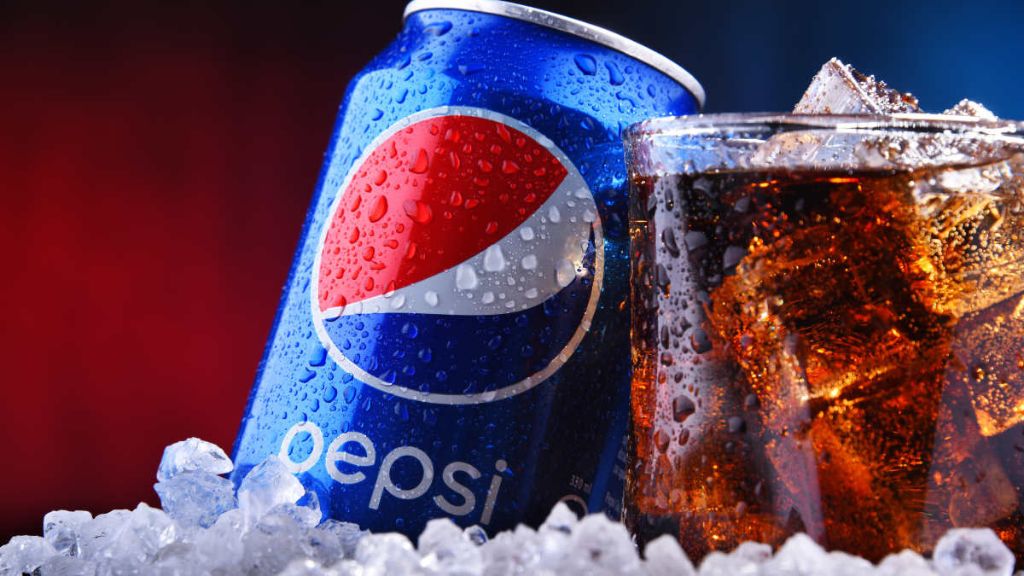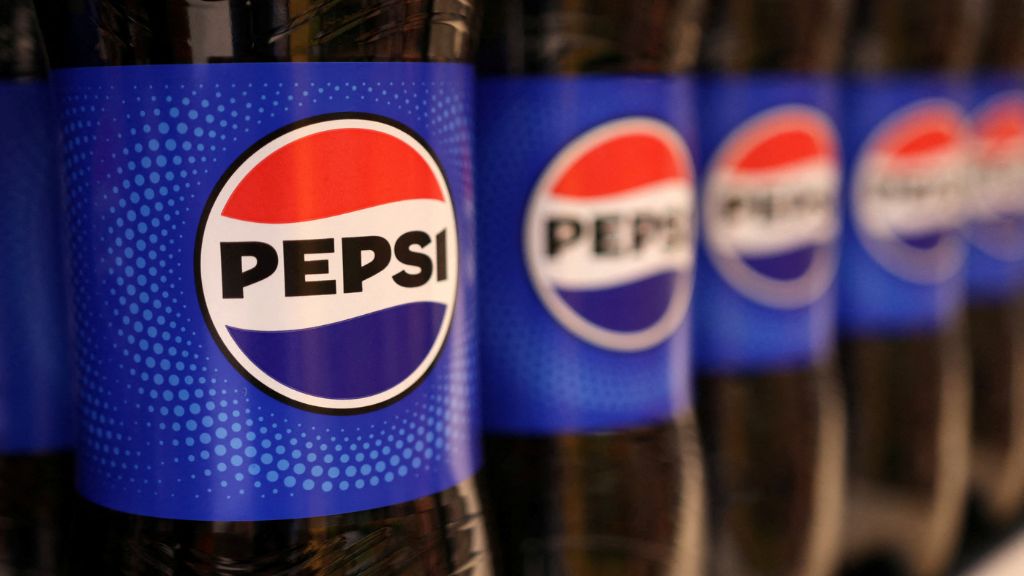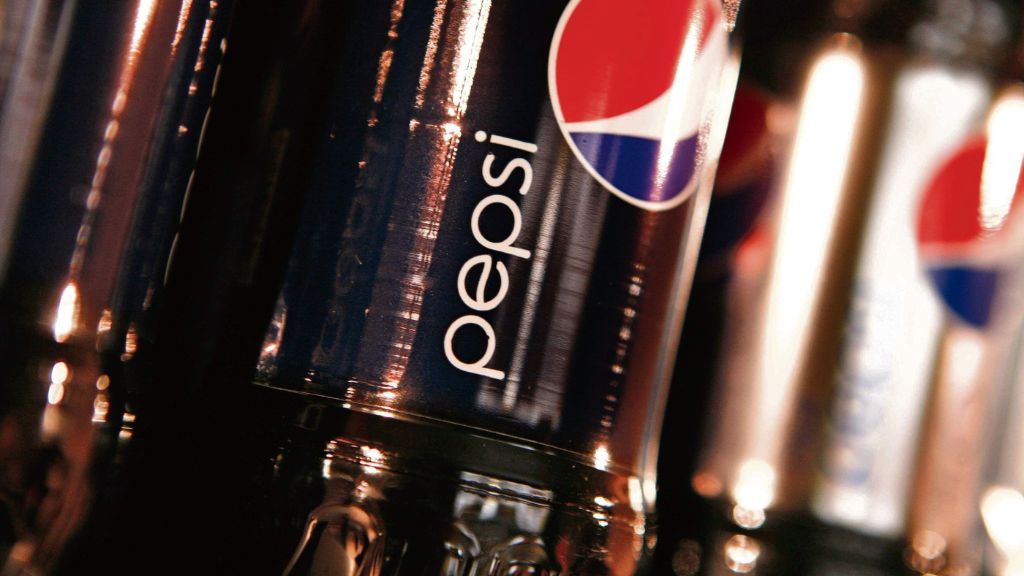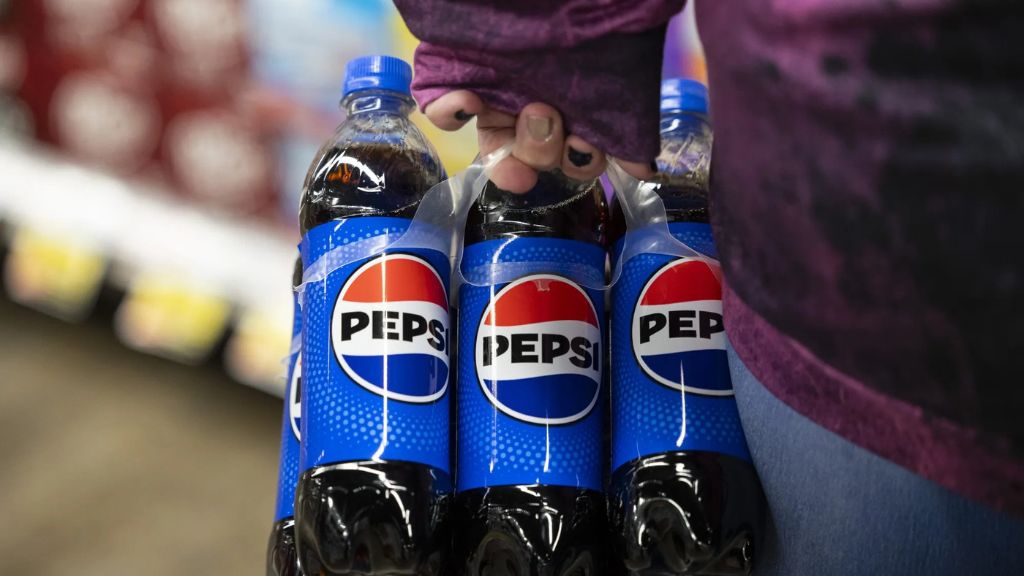Hey there, soda lovers and health enthusiasts! Big news is bubbling up in the beverage world, and it’s got everyone talking. PepsiCo, the giant behind your favorite drinks and snacks, just dropped a bombshell on March 17, 2025: they’re buying Poppi, a popular prebiotic soda brand, for a whopping $1.95 billion! If you’re wondering what this means for your soda-sipping habits or why PepsiCo is making this move, you’re in the right place. We’re breaking it all down in a friendly, easy-to-read guide that covers everything you need to know about this exciting acquisition.
From Poppi’s humble beginnings to its rise as a health-conscious soda star, and PepsiCo’s plans to shake up the beverage game, we’ve got the full scoop. Plus, we’ll explore why prebiotic sodas are all the rage right now and how this deal fits into the bigger picture of PepsiCo’s evolving strategy. So, grab a cold drink (maybe a Poppi?), and let’s dive into this fizzy story!
What’s the Deal with PepsiCo and Poppi?
PepsiCo, the company famous for classics like Pepsi, Mountain Dew, and Lay’s chips, is making a bold move by acquiring Poppi, a trendy prebiotic soda brand. The deal, announced on March 17, 2025, is valued at $1.95 billion, though PepsiCo will enjoy $300 million in anticipated cash tax benefits, bringing the net cost to $1.65 billion. This acquisition marks a significant step for PepsiCo as it expands into the growing world of functional beverages—drinks that offer health benefits beyond just refreshment.
Poppi isn’t your average soda. It’s a low-calorie, low-sugar option that combines prebiotics, fruit juice, and apple cider vinegar to create a drink that’s both tasty and health-focused. Founded in 2016 by Allison and Stephen Ellsworth, Poppi started as a small-scale venture but skyrocketed to fame after a successful pitch on the TV show “Shark Tank” in 2018. Since then, it’s become a go-to choice for health-conscious consumers looking for a soda that aligns with their wellness goals.
Read Also: Netflix’s $320M Sci-Fi Flop or Hit? The Electric State Leaves Critics Cold but Tops Charts!
Ramon Laguarta, PepsiCo’s Chairman and CEO, shared his excitement about the acquisition, saying, “We’ve been working hard to evolve our portfolio over the years, bringing innovation to our brands and making smart acquisitions that give consumers more positive choices. Today’s consumers want convenient, great-tasting options that fit their lifestyles and meet their growing interest in health and wellness.” With Poppi now under its wing, PepsiCo is poised to make a splash in the booming functional soda market.
Why Poppi? The Rise of Prebiotic Sodas
If you’ve noticed more “healthy” soda options popping up on store shelves lately, you’re not alone. The rise of prebiotic sodas like Poppi and its rival Olipop is part of a larger trend among health-conscious Americans. Traditional sodas, loaded with sugar and artificial ingredients, have been losing favor over the past two decades as people become more mindful of what they’re putting into their bodies. Enter prebiotic sodas—a new breed of beverages that promise a refreshing taste with added health benefits.
So, what makes Poppi special? Unlike regular sodas, Poppi is designed to support gut health with ingredients like prebiotics (which feed the good bacteria in your gut) and apple cider vinegar (known for its potential digestive benefits). It’s low in sugar—only five grams per serving—making it a guilt-free alternative to sugary soft drinks. Plus, it comes in fun, fruit-forward flavors like strawberry lemon and orange cream, packaged in brightly colored cans that scream “trendy” and “modern.”
Poppi’s journey began when Allison Ellsworth, tired of how traditional sodas made her feel, started experimenting in her kitchen. She mixed fruit juices, apple cider vinegar, and sparkling water to create a drink that was both delicious and better for her body. After selling her creation at local farmers’ markets under the name Mother Beverage, Allison and her husband Stephen pitched the idea on “Shark Tank” in 2018. Investor Rohan Oza saw the potential and helped rebrand it as Poppi, turning it into the sleek, health-focused soda we know today.
Since then, Poppi has seen incredible growth. By 2023, its annual sales reportedly crossed $100 million, and its retail sales jumped 122% year-over-year in early 2025, according to industry reports. It even holds about a 1% share of the entire carbonated soft drink market—a huge feat for a relatively new player. With a loyal fanbase and high-profile moves like airing ads during the Super Bowl two years in a row, Poppi has proven it’s a force to be reckoned with.
Why Did PepsiCo Choose Poppi Over Building Its Own Brand?
You might be wondering: why didn’t PepsiCo just create its own prebiotic soda instead of spending nearly $2 billion on Poppi? Great question! As it turns out, PepsiCo had been exploring the idea of launching a functional soda under its Soulboost brand. However, rather than starting from scratch, the company decided to acquire Poppi, a brand that’s already established itself as a leader in the prebiotic soda space.

There are a few key reasons why this makes sense for PepsiCo:
Instant Market Presence
Poppi comes with a built-in customer base, strong brand recognition, and a proven track record. By acquiring Poppi, PepsiCo gains immediate access to the growing functional beverage market without the time and risk of developing a new product from the ground up. Poppi’s success on “Shark Tank,” its Super Bowl ads, and its presence in major retailers like Walmart, Target, and Whole Foods give it a head start that PepsiCo can leverage right away.
Health-Conscious Consumer Appeal
PepsiCo has been facing declining demand for its traditional sugary sodas and snacks, as consumers increasingly turn to healthier options. Poppi’s focus on low sugar, prebiotics, and gut health aligns perfectly with this shift in consumer preferences. By adding Poppi to its portfolio, PepsiCo can cater to health-conscious shoppers and strengthen its position in the “better-for-you” beverage category.
Competitive Edge
The prebiotic soda market is heating up, and PepsiCo isn’t the only big player taking notice. Coca-Cola recently launched its own prebiotic soda, Simply Pop, signaling that the competition is getting fierce. Other brands like Olipop, valued at $1.85 billion in its latest funding round, are also making waves. By acquiring Poppi, PepsiCo gains a competitive edge over rivals and secures a strong foothold in this fast-growing category.
Distribution and Marketing Power
PepsiCo’s massive distribution network and marketing budget are game-changers for Poppi. While Poppi has done an amazing job building its brand, partnering with PepsiCo means it can reach even more consumers across the U.S. and potentially the world. PepsiCo’s expertise in scaling brands could take Poppi to new heights, making it a win-win for both companies.
PepsiCo’s Bigger Strategy: Evolving for the Future
The Poppi acquisition isn’t a one-off move—it’s part of a broader strategy PepsiCo has been pursuing for years. The company has been working to evolve its food and beverage portfolio to meet changing consumer demands, focusing on innovation and strategic acquisitions that offer healthier options. Let’s take a look at how Poppi fits into this bigger picture:
Recent Acquisitions
PepsiCo has been busy snapping up brands that align with its goal of offering “positive choices” to consumers. In January 2025, the company completed its $1.2 billion acquisition of Siete Foods, a maker of gluten-free tortilla chips and other healthier snacks. In November 2024, PepsiCo bought the remaining 50% of Sabra and Obela dip and spread brands from Strauss Group, further expanding its portfolio of better-for-you products. The Poppi deal is the latest in this string of acquisitions, showing PepsiCo’s commitment to diversifying its offerings.
Responding to Consumer Trends
Consumers today are more focused on health and wellness than ever before. They’re looking for convenient, tasty options that don’t compromise their goals—whether that’s reducing sugar intake, supporting gut health, or avoiding artificial ingredients. PepsiCo has recognized this shift and is adapting by adding brands like Poppi, Siete, and Sabra to its lineup. These acquisitions allow PepsiCo to meet consumers where they are and stay relevant in a changing market.
The Functional Beverage Boom
The functional beverage category, which includes drinks with added health benefits like prebiotics, probiotics, or vitamins, is growing at a rapid pace. Experts predict that this sector could generate $2 billion in sales by 2029, driven by demand for healthier alternatives to traditional sodas. PepsiCo’s acquisition of Poppi positions it to capitalize on this growth and compete with other players like Coca-Cola, Celsius Holdings, and Keurig Dr Pepper, who are also targeting the wellness drink market.
Challenges and Controversies: Poppi’s Bumpy Ride
While Poppi’s rise has been impressive, it hasn’t been without its challenges. The brand has faced some backlash and legal hurdles that could impact its future under PepsiCo. Here’s what’s been going on:

Health Claims Controversy
Poppi has marketed itself as a gut-healthy soda, thanks to its prebiotic content and apple cider vinegar. However, in 2024, the company faced multiple class-action lawsuits from consumers who argued that its drinks didn’t deliver the health benefits promised by its marketing. Critics pointed out that the amount of prebiotics in Poppi might not be sufficient to significantly improve gut health, leading to accusations of misleading claims.
Poppi responded by removing “gut health” references from its packaging in late 2023, but the legal battles continued. In early 2025, the company agreed to settle one of these lawsuits for $8.9 million, with a hearing scheduled for May. While Poppi denied the allegations, the settlement fund will provide payments to consumers who purchased the soda. PepsiCo will need to navigate these concerns carefully as it integrates Poppi into its portfolio, ensuring that marketing aligns with scientific evidence to avoid further scrutiny.
Social Media Backlash
Poppi also faced criticism in early 2025 when it gifted full-sized vending machines stocked with Poppi to influencers during Super Bowl weekend. Some social media users called the move “out of touch,” arguing that it highlighted a disconnect between the brand and everyday consumers. While this didn’t derail Poppi’s growth, it’s a reminder that maintaining a positive public image will be key as the brand scales up with PepsiCo’s support.
What’s Next for Poppi and PepsiCo?

With the acquisition announced on March 17, 2025, the next steps for Poppi and PepsiCo depend on a few factors. The deal is subject to regulatory approval, and while no specific closing date has been shared, it’s expected to move forward in the coming weeks or months. Once finalized, here’s what we can expect:
Expansion and Growth
PepsiCo’s extensive distribution network will help Poppi reach more stores, cities, and even countries. Imagine walking into your local grocery store or gas station and seeing Poppi cans everywhere—that’s the kind of scale PepsiCo can bring. The company’s marketing muscle, including potential ad campaigns and partnerships, could also boost Poppi’s visibility and sales.
Innovation and New Flavors
PepsiCo has a history of innovating with its brands, and Poppi could benefit from this expertise. We might see new Poppi flavors, limited-edition releases, or even collaborations with other PepsiCo brands. The company could also invest in research to strengthen Poppi’s health credentials, addressing past controversies and appealing to wellness-focused consumers.
Competition with Coca-Cola and Beyond

The prebiotic soda market is getting crowded, and PepsiCo will need to keep Poppi competitive. Coca-Cola’s Simply Pop is already on the scene, and Olipop continues to grow with a $1.85 billion valuation and $400 million in sales in 2024. Smaller brands like Spindrift Soda and Bloom Nutrition are also entering the fray. PepsiCo’s challenge will be to ensure Poppi stands out in this busy market, leveraging its unique flavors and health-focused branding.
A Long-Term Vision
PepsiCo’s acquisition of Poppi is about more than just one brand—it’s about positioning the company for the future. As consumer preferences continue to evolve, PepsiCo is betting on functional beverages to drive growth and offset declines in traditional soda and snack sales. Whether this strategy pays off will depend on how well PepsiCo can integrate Poppi, manage its challenges, and adapt to the ever-changing beverage landscape.
Final Thoughts: A Fizzy Future Ahead
PepsiCo’s nearly $2 billion acquisition of Poppi is a game-changer for both the company and the prebiotic soda market. For Poppi, it’s a chance to grow from a trendy startup to a global brand with the backing of a beverage giant. For PepsiCo, it’s a strategic move to stay ahead of consumer trends and compete in the fast-growing world of functional drinks. And for consumers, it means more options for tasty, health-conscious sodas that fit into modern lifestyles.
While Poppi has faced its share of challenges, from lawsuits to social media criticism, its strong sales growth and loyal fanbase show that it’s got something special. With PepsiCo’s resources and expertise, Poppi has the potential to reach new heights and redefine what soda can be. So, the next time you’re craving a refreshing drink, keep an eye out for Poppi—it might just become your new favorite, thanks to this blockbuster deal. Cheers to a fizzy, healthy future!

